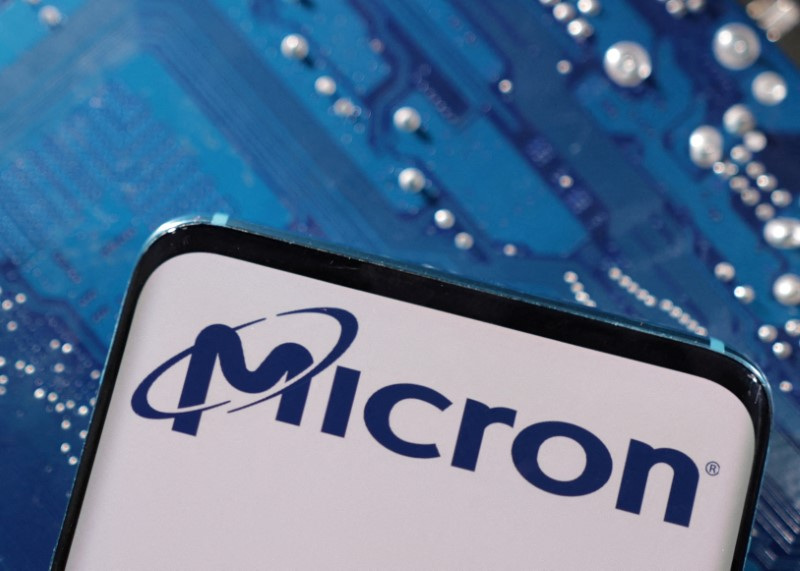Factbox-US finalizes more than $6.1 billion funding for Micron under CHIPS Act
2024.12.10 07:57
(Reuters) -The U.S. Department of Commerce has finalized a subsidy of more than $6.1 billion for Micron Technology (NASDAQ:), marking one of the largest government awards to chip companies under the U.S. CHIPS and Science Act.
Below is a list of the large awards made so far under the CHIPS and Science Act:
POLAR SEMICONDUCTOR
Polar Semiconductor, owned by Sanken Electric and Allegro (WA:) MicroSystems, said it would receive as much as $123 million in direct funding. It plans to invest about $525 million over the next two years to double the production capacity of its Bloomingdale, Minnesota facility.
TEXAS INSTRUMENTS
Texas Instruments (NASDAQ:) will receive as much as $1.6 billion in direct funding to support the construction of three new domestic facilities.
MICRON
The U.S. Department of Commerce has finalized a subsidy of more than $6.1 billion for the memory chip maker to support the construction of several domestic semiconductor facilities.
SAMSUNG
The South Korean electronics giant will be provided up to $6.4 billion to expand its facilities in Texas under a preliminary memorandum of terms signed in April.
TSMC
The U.S. Commerce Department finalized a $6.6 billion government subsidy in November for Taiwan Semiconductor Manufacturing Co’s U.S. unit for semiconductor production in Phoenix, Arizona.
INTEL
The U.S. Commerce Department said in November it was finalizing a $7.86 billion government subsidy for Intel (NASDAQ:), down from $8.5 billion announced in March after the California-based chips maker won a separate $3 billion award from the Pentagon.
GLOBALFOUNDRIES
In November, the U.S. finalized a $1.5 billion government subsidy for the world’s third-largest contract chipmaker to build a semiconductor production facility in Malta, New York and expand existing operations there and in Burlington (NYSE:), Vermont.

MICROCHIP TECHNOLOGY
The company will get $162 million in government grants, it was announced in January, allowing the company to triple production of mature-node semiconductor chips and microcontroller units at two U.S. factories.








